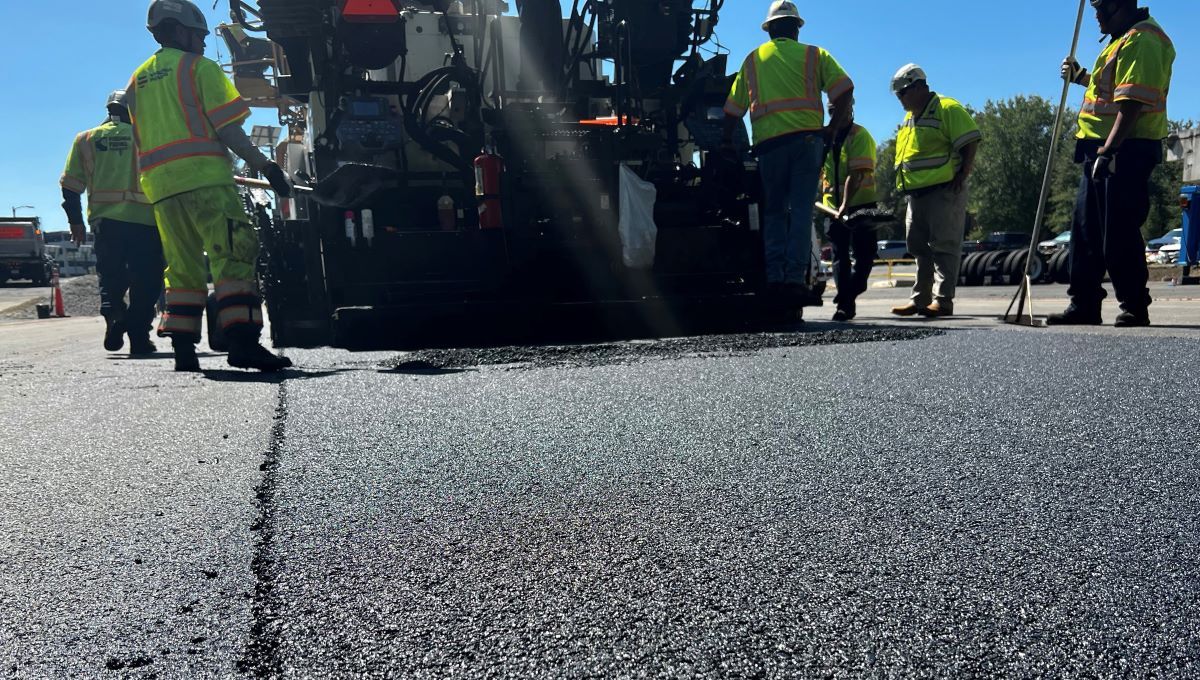
A crew installs a test section of soybean-based asphalt developed by Iowa State researchers. The test in Virginia is part of a long-term performance study by the Federal Highway Administration. Larger photo. Photo courtesy of Eric Cochran.
AMES, Iowa – Iowa State University engineers who have developed and commercialized soybean-based technologies for asphalt pavements will explain their innovations during a briefing in Washington, D.C.
The press and public are invited to “Bio-Based Asphalt: Paving the Future.” The briefing will be 2-4 p.m. Tuesday, Feb. 6, in Room SVC 203-02 in the Capitol Visitors Center. Please RSVP here.
Congressional staffers and representatives of the American Association of State Highway and Transportation Officials have also been invited.
Speaking will be:
- Eric Cochran, the Mary Jane Skogen Hagenson and Randy L. Hagenson Professor in Chemical and Biological Engineering, Iowa State’s site director for the Center for Bioplastics and Biocomposites supported by the National Science Foundation and a co-founder and technical advisor for SoyLei Innovations, a company commercializing biopolymers for asphalt.
- Christopher Williams, the Gerald and Audrey Olson Professor in Civil Engineering, the director of the Iowa State Institute for Transportation’s Asphalt Materials and Pavements Program and a SoyLei co-founder and technical advisor.
Cochran and Williams have worked for more than 13 years to develop a bio-based alternative to a petroleum-based asphalt additive that extends the life of pavements, promotes pavement recycling and lowers emissions from pavement production and maintenance.
They oversaw hundreds of lab attempts to find the right ingredients, formulations and production processes for a new biopolymer. Experiments producing fractions of an ounce of material revealed soybean oil could produce biopolymers with the desired properties.
The research eventually progressed to development of a $5.3 million pilot plant with a 1,300-gallon holding tank for those biopolymers. More work led to a simpler manufacturing process and a startup company, SoyLei Innovations, which has so far sold about 1 million pounds of biopolymers.
The context for the briefing includes research projects supported by the U.S. Department of Agriculture and the Federal Highway Administration that are comparing the soybean-based pavements developed at Iowa State with other bio-based pavements in long-term, side-by-side tests.
And, two U.S. senators – Chris Coons, a Delaware Democrat, and Thom Tillis, a North Carolina Republican – in December introduced the Concrete and Asphalt Innovation Act of 2023 to launch a national research and development program for low-emissions concrete and asphalt.